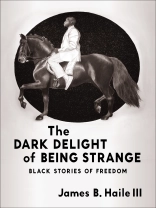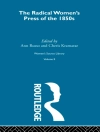An ambitious genre-crossing exploration of Black speculative imagination, The Dark Delight of Being Strange combines fiction, historical accounts, and philosophical prose to unveil the extraordinary and the surreal in everyday Black life.
In a series of stories and essays, James B. Haile, III, traces how Black speculative fiction responds to enslavement, racism, colonialism, and capitalism and how it reveals a life beyond social and political alienation. He reenvisions Black technologies of freedom through Henry Box Brown’s famed escape from slavery in a wooden crate, fashions an anticolonial “hollow earth theory” from the works of H. G. Wells and Jules Verne, and considers the octopus and its ability to camouflage itself as a model for Black survival strategies, among others. Looking at Black life through the lens of speculative fiction, this book transports readers to alternative worlds and spaces while remaining squarely rooted in present-day struggles. In so doing, it rethinks historical and contemporary Black experiences as well as figures such as Harriet Tubman, Frederick Douglass, Booker T. Washington, W. E. B. Du Bois, Henry Dumas, and Toni Morrison.
Offering new ways to grasp the meanings and implications of Black freedom, The Dark Delight of Being Strange invites us to reimagine history and memory, time and space, our identities and ourselves.
Daftar Isi
Acknowledgments
Preface: P.S.A.
Part I: Of the Door of No Return to the Stars
1. Henry Box Brown: An Ode to the Enigma of Black Freedom
2. At Rest: Journey to the Center of the Earth
3. Dumas: This Land of Mine
Part II: On the Transformation of the Spirit
4. Theft
5. Tathāgata
6. Appetite/Fever/Consumption
Epilogue: Nero—Toward a More Perfect Union
Notes
Index
Tentang Penulis
James B. Haile, III is an Afrosurrealist and Afrofuturist writer who is an associate professor of philosophy with a joint appointment in English at the University of Rhode Island. He is the author of
The Buck, the Black, and the Existential Hero: Refiguring the Black Male Literary Canon, 1850 to Present (2020).












